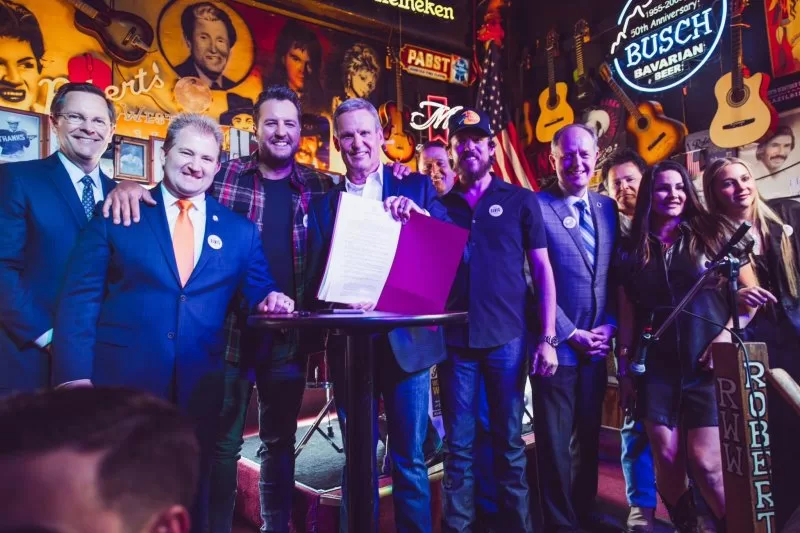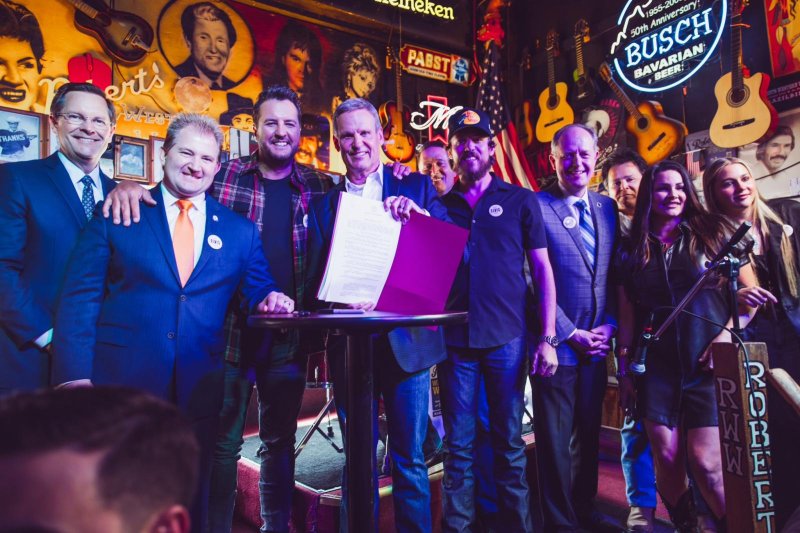Tennessee Gov. Bill Lee (C) poses for a photo Thursday at Robert’s Western World, in Nashville, Tenn., with a bill he signed to protect musicians from artificial intelligence. Photo courtesy of Tennessee Gov. Bill Lee/
XMarch 22 (UPI) — Tennessee Gov. Bill Lee has signed legislation to protect musicians from artificial intelligence, making it the first state in the nation to enact such a bill amid growing concerns about the advanced technology.
Lee, a Republican, signed the bill Thursday at Robert’s Western World, a live country music bar in Nashville, a city said to be the home of country music.
“TN is the music capital of the world & we’re leading the nation with historic protections for TN artists & songwriters against emerging AI technology,” Lee said on X.
The Ensuring Likeness Voice and Image Security Act, which is also known as the ELVIS Act, updates Tennessee’s existing state law that prohibits the use of another person’s name, photograph or likeness in any medium to include voice.
The bill arms musicians and artists with the ability to file civil action against those use a person’s voice without their consent.
“The ELVIS Act puts in critical safeguards to protect the humanity and artistic expression of Tennessee innovators and creators. While we support the responsible advancement of this technology, we must ensure we do not threaten the future livelihood of an entire industry,” Tennessee state House majority leader William Lamberth said in a statement.
“This legislation is an important step in maintaining public trust and advancing ongoing efforts to protect and inform Tennessee consumers.”
Tennessee said its music industry supports more than 61,600 jobs and contributes $5.8 billion to its GDP.
The bill was signed amid mounting concern over the advancement of AI and its impact on creative arts as well as on democratic practices and even its potential use for repression.
As Lee was signing his legislation Thursday, the United Nations Generally Assembly adopted a U.S.-led resolution establishing baseline rules to regulate AI. The resolution include a ban on AI systems that scrape facial images from the Internet to create facial recognition databases.

